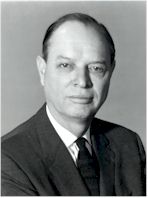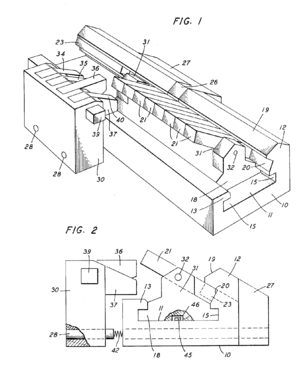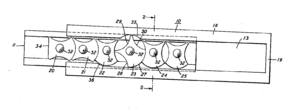William Keister: Difference between revisions
No edit summary |
m (Text replace - "[[Category:Engineering profession" to "[[Category:Profession") |
||
| Line 27: | Line 27: | ||
<p>Keister died on June 26, 1997. </p> | <p>Keister died on June 26, 1997. </p> | ||
[[Category:People and organizations|Keister]] [[Category:Engineers|Keister]] [[Category:Communications|Keister]] [[Category:Telephony|Keister]] [[Category:Telephone switching systems|Keister]] [[Category:Automation|Keister]] [[Category:Control equipment|Keister]] [[Category: | [[Category:People and organizations|Keister]] [[Category:Engineers|Keister]] [[Category:Communications|Keister]] [[Category:Telephony|Keister]] [[Category:Telephone switching systems|Keister]] [[Category:Automation|Keister]] [[Category:Control equipment|Keister]] [[Category:Profession|Keister]] [[Category:Engineering education|Keister]] [[Category:Electrical engineering education|Keister]] [[Category:News|Keister]] | ||
Revision as of 20:12, 23 July 2014
Biography
Born: June 6, 1907
Died: June 28, 1997
William Keister was born on June 6, 1907 in Montgomery, Alabama, graduating from Auburn University in 1930 with a B.S. degree in electrical engineering. From boyhood, he was interested in puzzles. His interest of developing and solving logic puzzles through formal processes helped him develop ideas he applied to practical purposes, including telecommunications switching. He patented a number of his logic puzzles, including the Locking Disc Puzzle and the Pattern Matching Puzzle (see figure).
Keister specialized in switching systems since joining Bell Laboratories in 1930. Initially, he worked on the development and testing of toll switching and signaling circuits, and later was involved in special studies of relays and dial telephone switching systems.
During World War II, Keister taught theory and maintenance of radar equipment to military personnel in the Bell Labs School for War Training. After the war, Keister joined the staff of Bell Labs' Communications Development Training Program for graduate engineers, where he taught courses on switching.
The first exploratory development work on electronic switching systems was started in 1952 in a small group headed by Keister. He was one of the first to recognize the advantage of control by a stored program and to participate in planning a system based on this concept.
In 1958 Keister was appointed Director of the Switching Systems Studies Center. In this position, he was in charge of the engineering planning of Electronic Switching Systems to meet both the present and future needs of the Bell System.
He was also responsible for the operation of the computer center at the Holmdel Laboratory and for research activity on computer languages and programming systems. At the time of his retirement from Bell Laboratories in July 1972, after a 38-year career, he was Director of the Computing Technology Center.
Keister wrote a number of technical articles and co-authored the book, The Design of Switching Circuits. He was also granted 5 patents. He was a Fellow of the IEEE and a member of the honor societies Eta Kappa Nu, Tau Beta Pi, and Phi Kappa Phi.
He was co-recipient of the Alexander Graham Bell Medal in 1976, along with Amos E. Joel, Jr., and Raymond W. Ketchledge 'For conception and development of Electronic Switching Systems and their effective introduction into a nation-wide telephone system.'
Keister died on June 26, 1997.


